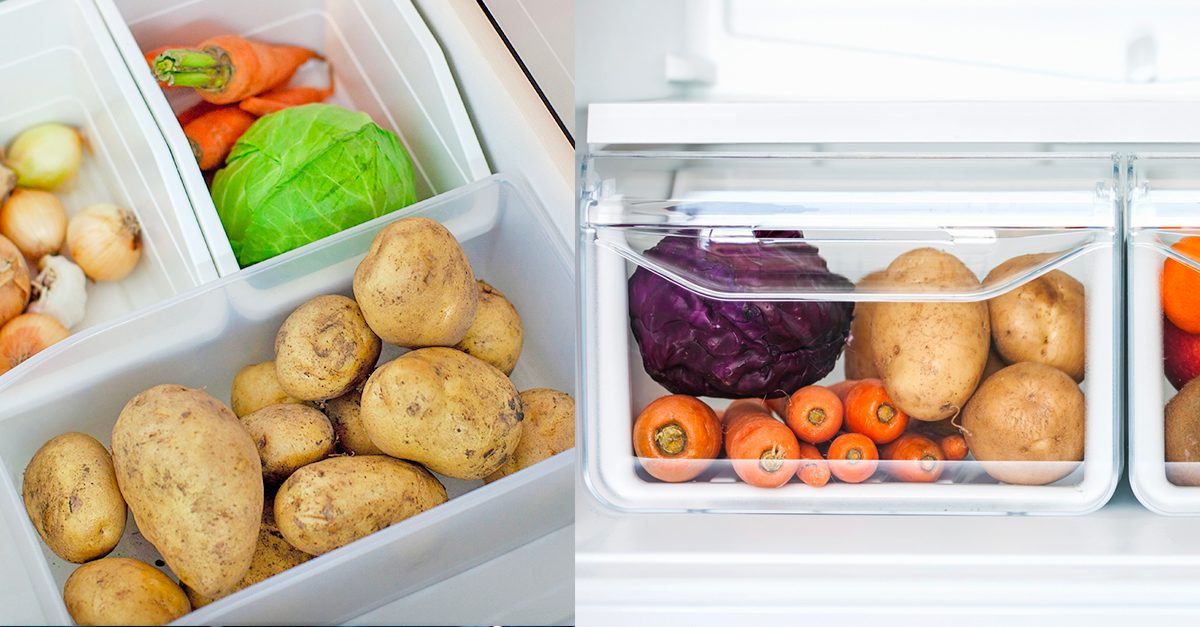;)
Potatoes are one of the most versatile and beloved ingredients in the culinary world. From crispy fries and creamy mashed potatoes to hearty stews and deliciously baked potatoes, this humble tuber is a staple in many households. They are not only incredibly versatile but also affordable, allowing you to buy them in large quantities without breaking the bank. Potatoes can be a lifesaver, providing a quick and easy solution for a variety of meals. However, when it comes to storing these kitchen heroes, a common mistake is to keep them in the fridge. While it might seem like the sensible option, it's actually a big no-no.
Why is the Fridge is a Bad Environment for Raw Potatoes?
Storing raw potatoes in the fridge is detrimental for several reasons. The cold temperature of the fridge, typically around 37°F or 3°C, can negatively affect the quality and taste of the potatoes. Potatoes are high in starch, and when stored at low temperatures, the starch converts to sugar. This process is known as "cold-induced sweetening." As the starch turns into sugar, it can alter the flavor of the potato, making it unusually sweet and less desirable for many dishes.

Furthermore, the increase in sugar levels can lead to higher levels of acrylamide when potatoes are cooked at high temperatures, such as frying or roasting. Acrylamide is a chemical compound that forms in certain foods during high-temperature cooking and is considered a potential health risk due to its carcinogenic properties. The refrigeration process can also alter the texture of the potato. Cold temperatures can cause the cells within the potato to break down, leading to a gritty or mealy texture once cooked, which is far from the desired smooth and fluffy consistency.
Where to Store Potatoes at Home
The ideal storage conditions for raw potatoes are a cool, dark, and well-ventilated place. A temperature range of 45-50°F (7-10°C) is optimal, which can typically be found in a pantry, cellar, or a basement. The darkness helps prevent the potatoes from turning green and producing solanine, a toxic compound. Ensure that the storage area has good air circulation. Use a paper bag, burlap sack, or a cardboard box with ventilation holes. Avoid using plastic bags as they can trap moisture and promote mold growth.

What About Cooked Potatoes, Then?
Once potatoes are cooked, their storage requirements change. Steamed or boiled potatoes should be cooled down and then stored in an airtight container in the refrigerator, where they can be kept for up to 3-5 days. Avoid leaving them at room temperature for more than two hours to prevent bacterial growth. Roasted potatoes should also be stored in an airtight container and can last in the refrigerator for about 3-5 days. Reheat them in the oven to regain some of their crispiness. Mashed potatoes can be stored in an airtight container. They can be refrigerated for 3-5 days or frozen for up to a month. When reheating, add a bit of milk or butter to restore their creamy texture.
;Resize,width=767;)
